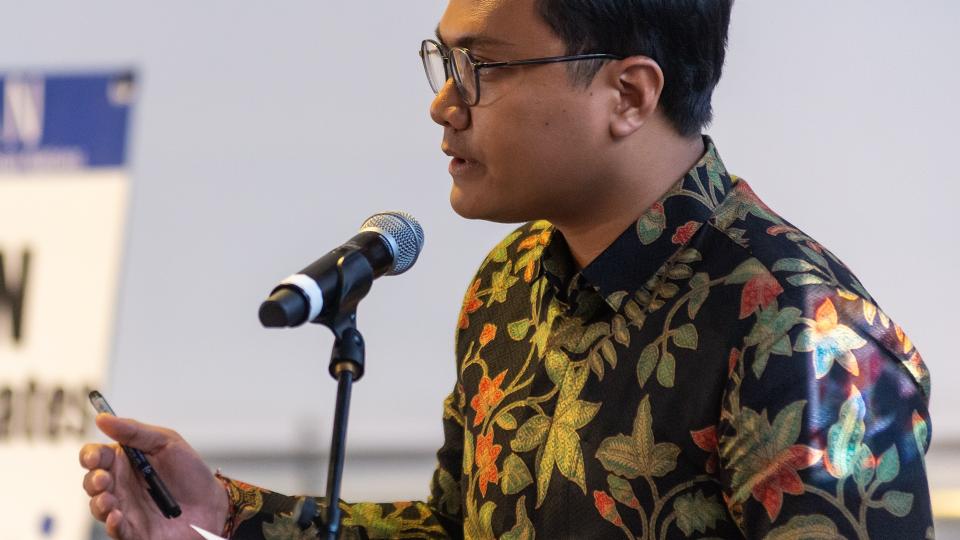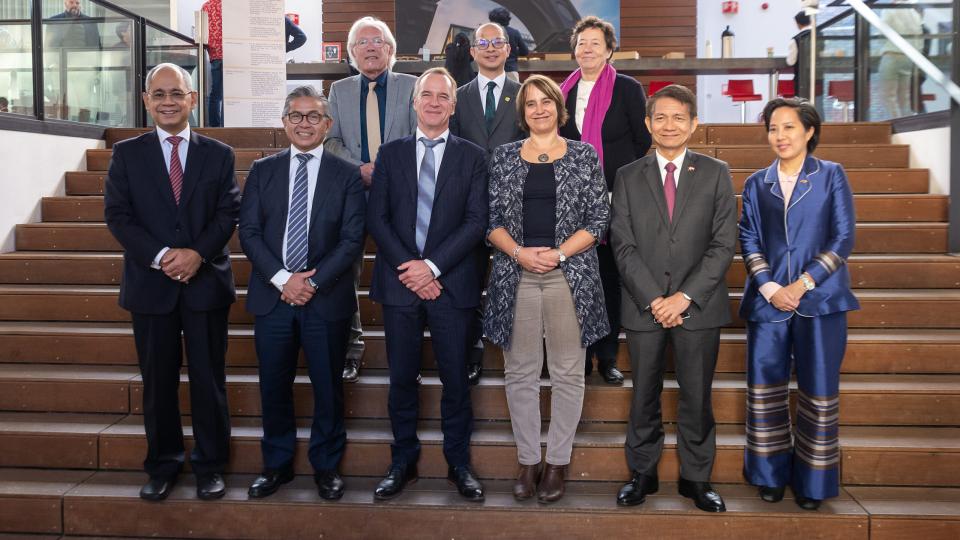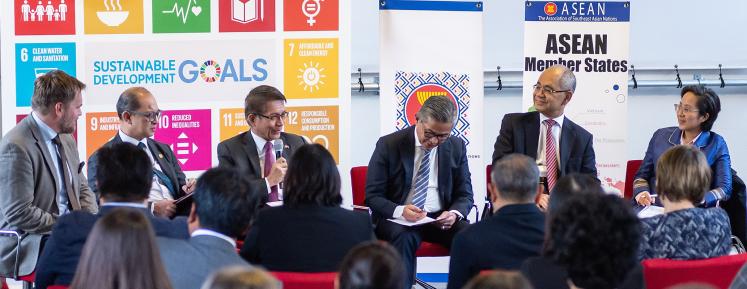On 15 November, UNU-MERIT played host to the panel discussion ASEAN 2045: The Future of the Region as an Epicentrum of Growth, co-organised by the Embassy of the Republic of Indonesia. Five ambassadors and diplomatic representatives from the Association of Southeast Asian Nations (ASEAN) discussed how ASEAN diplomacy plays a pivotal role on both a regional and global level. Michal Natorski (Assistant Professor at UNU-MERIT) was moderating.

Following this public discussion, reflections were invited from a select few of our PhD fellows and students, including Nareswara Wiadnyana of our MSc in Public Policy and Human Development programme and national of Indonesia. Here, Nareswara shares some highlights from the event about ASEAN’s past, present and future as a group of nations.
A look at ASEAN’s new Vision 2045
By Nareswara Wiadnyana
The Association of Southeast Asian Nations (ASEAN), established in 1967, stands today as a beacon of regional cooperation and integration. With 10 member states, ASEAN's mission transcends mere economic collaboration to foster a unified, stable Southeast Asia. From my point of view as a master’s student in public policy, it's clear that ASEAN holds considerable promise for marked economic and political growth by 2045.
In 2021, building upon its legacy of regional cooperation since 1967, ASEAN adopted Vision 2045, a strategic plan responding to evolving global trends and internal challenges. Extending beyond the ASEAN Community Vision 2025, it aims to intensify integration and enhance connectivity across economic and socio-cultural sectors. Vision 2045 confronts contemporary issues like digital transformation, environmental sustainability and socio-economic inequities. It sets out a framework for the region’s evolution into a globally influential, interconnected and prosperous region by 2045.
Historically, ASEAN's journey began with five founding nations. Now including Brunei, Cambodia, Indonesia, Laos, Myanmar, the Philippines, Singapore, Thailand, Vietnam and Malaysia, the organisation promotes peace, stability and shared prosperity. Its establishment marked a pivotal shift in regional dynamics, setting the stage for significant economic and social advancements. However, ASEAN's path has not been without challenges, such as political instability and economic disparities, testing its resilience and adaptability.
The economic future of ASEAN, buoyed by its young, vibrant population and abundant resources, is poised for significant growth. Technological innovation, particularly in digital economies and eco-friendly industries, is expected to drive this growth. The region's strategic geographical position further cements its role as a critical global trade and investment player.
Politically, ASEAN's diverse governance models play a critical role in shaping its future. Good governance is the linchpin of economic prosperity, while political instability can undermine collective efforts. ASEAN's diplomatic finesse, particularly in navigating complex relationships with global powers like China, the U.S. and India, is crucial. The organization's active participation in forums like the Regional Comprehensive Economic Partnership (RCEP) underscores its burgeoning influence on the global stage.
However, ASEAN faces formidable challenges, including climate change, socio-economic inequalities, and regional conflicts. These issues pose significant threats to its sustainable development trajectory. The fight against climate change requires strong, sustainable environmental policies to address social inequalities, while inclusive development programmes for marginalized communities need to be implemented. Effective conflict resolution mechanisms are critical to maintaining peace and fostering regional cooperation.
In the end, ASEAN's journey toward 2045 is one of both opportunity and challenge. As a public policy student, I view ASEAN's development as a testament to regional cooperation's power and collective action's potential to shape a more prosperous, equitable and stable world. The strategies and policies adopted by ASEAN in the coming years will be pivotal in realizing this vision, hopefully offering valuable lessons in regional integration and development for all.
Please share your thoughts on our Facebook, Twitter, Instagram & LinkedIn accounts.



